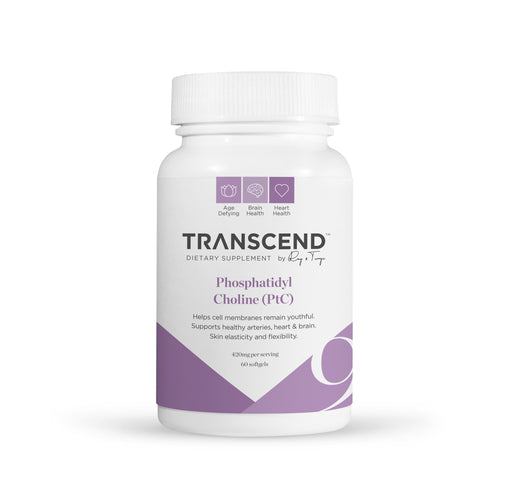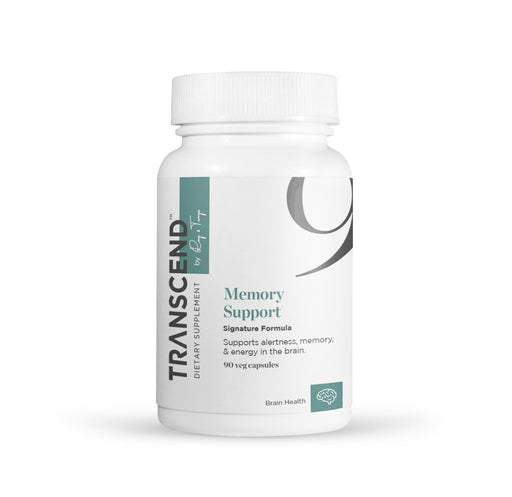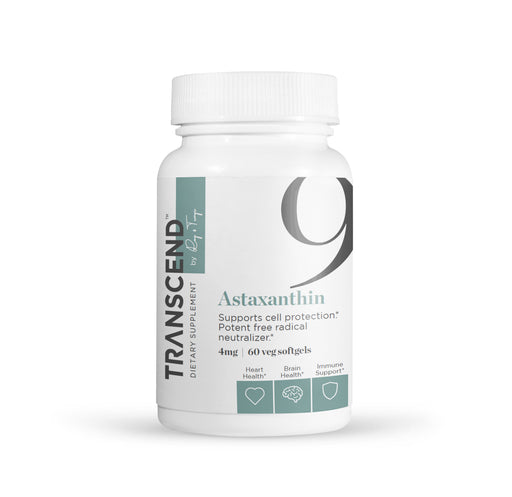
Anti-Aging Complex (ALA/ALC/Carnosine/GSE)
A Kurzweil + Grossman Formula Antioxidant and anti-aging protection Increase energy Fight aging Decrease wrinkles Cellular integrity Anti-Aging...
View full details
If you've just started building your supplement stack, you may be wondering which popular vitamins and supplements you really need to improve your overall health and wellness.
Magnesium isn't just an element on the periodic table — it's an essential mineral that your body needs to maintain healthy function. Magnesium plays a vital role in the prevention and treatment of many diseases.
Magnesium is the eighth most common mineral found in the Earth's crust, but it's also the fourth most abundant mineral in our bodies.
As an adult, your body contains around 25g of magnesium. Most of that (approximately 50-60%) is concentrated in the bones. The rest is found in your muscles and soft tissues, as well as in your blood.
Despite magnesium's importance, our bodies don't produce it. Instead, most adults get their magnesium through their diet or by taking additional supplements. Daily recommended allowances depend on age and gender: doctors generally recommend that men get between 400-420mg of magnesium per day and women between 320 and 360mg.
One study estimates that around 75% of Americans aren't getting enough magnesium, resulting in symptoms like fatigue, loss of appetite, nausea, muscle cramping, tingling, and muscle contractions.
Magnesium plays a crucial role in more than 300 distinct enzymatic reactions within your body. These reactions include regulating muscle and nerve function, blood sugar levels, and blood pressure, as well as making protein, bone, and DNA.
Magnesium supports a wide range of essential functions. From bone health to blood pressure (and more), here are some of the ways magnesium works on your body's behalf.
Bone Health
With most of the body's magnesium is concentrated in our bones, it makes sense that magnesium is essential for bone health.
Some studies have shown that low levels of magnesium are a risk factor for later bone fractures. People lose bone density as they age—especially post-menopausal women—but magnesium can help boost bone density and reduce the risk of bone loss.
Headaches
Magnesium is often recommended to treat migraines and other headaches.
Studies have shown that people who get migraines often have lower magnesium levels than those who don't. One study showed that regular magnesium supplementation reduced the frequency of migraines by more than 41%.
Blood Pressure
Magnesium supplements may help reduce blood pressure. Studies have shown that magnesium can increase the production of nitric oxide, which in turn helps relax blood vessels.
Another clinical review suggested that increased dietary intake of magnesium can help protect against developing high blood pressure in the first place. Each 100mg increase in daily dietary magnesium correlated with a 5% reduced risk of developing high blood pressure.
Mood and Sleep
Some studies suggest that magnesium may help fight depression and anxiety.
One study in 126 people with mild or moderate depression saw that participants who took 248mg of magnesium in addition to their regular treatment reported a significant improvement in their depression.
Another clinical review from 2017 saw that magnesium helped reduce anxiety, including mild anxiety, anxiety during premenstrual syndrome, postpartum anxiety, and generalized anxiety.
The mechanisms that help calm anxiety and depression can also help you get a better night's sleep. Magnesium activates the parasympathetic nervous system, which helps you calm down. Magnesium also helps regulate your body's melatonin, which controls your sleep-wake cycles.
Blood Sugar
Many people with type 2 diabetes are deficient in magnesium, and some studies suggest that magnesium supplements may help improve insulin resistance.
In one study, people with type 2 diabetes took 300mg of magnesium per day. Participants saw significant reductions in fasting and post-meal blood sugar levels when compared to the placebo group.
If you're worried about your magnesium intake, start by evaluating your diet. Magnesium deficiency in otherwise healthy adults who consume a balanced diet is relatively rare.
Excellent dietary sources of magnesium include green leafy vegetables, whole grains, beans, nuts, and fish. Just one ounce of dry-roasted almonds contains 80mg of magnesium.
Before choosing a magnesium supplement, remember to talk with your doctor. Magnesium can interact with several medications, including diuretics, some antibiotics, and chemotherapeutic agents. Large doses of magnesium may cause diarrhea, and exercise caution in cases of kidney dysfunction.

A Kurzweil + Grossman Formula Antioxidant and anti-aging protection Increase energy Fight aging Decrease wrinkles Cellular integrity Anti-Aging...
View full details
Improve skin elasticity Cell membrane flexibility Support memory function Healthy brain tissues Phosphatidylcholine (PtC) is a flexible phospho...
View full details
Improve short- and long-term memory Reduce stress levels Sharpen your cognitive performance Promote circulation and energy in brain Ray & ...
View full details
Healthy Eyes, Brain and Nervous System Potent carotenoid antioxidant Promotes healthy anti-inflammatory response Formulated with Zanthin® for eye...
View full details
Leave a comment